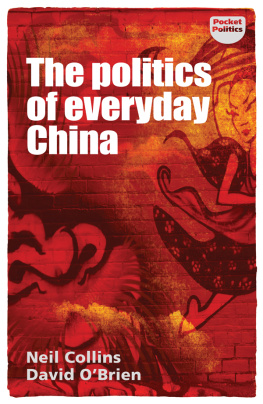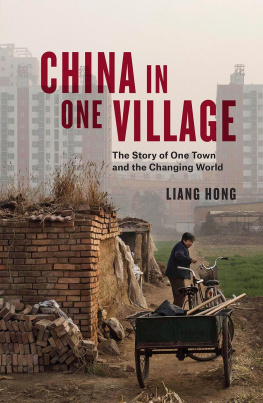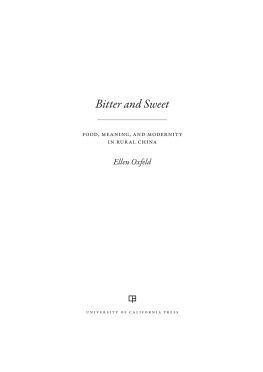COMMUNITIES OF COMPLICITY
DISLOCATIONS
General Editors: August Carbonella, Memorial University of Newfoundland, Don Kalb, Central European University and Utrecht University, Linda Green, University of Arizona
The immense dislocations and suffering caused by neoliberal globalization, the retreat of the welfare state in the last decades of the twentieth century, and the heightened military imperialism at the turn of the twenty-first century have raised urgent questions about the temporal and spatial dimensions of power. Through stimulating critical perspectives and new and cross-disciplinary frameworks that reflect recent innovations in the social and human sciences, this series provides a forum for politically engaged, ethnographically informed and theoretically incisive responses.
Volume 1
Where Have All the Homeless Gone?
The Making and Unmaking of a Crisis
Anthony Marcus
Volume 2
Blood and Oranges: Immigrant Labor and
European Markets in Rural Greece
Christopher M. Lawrence
Volume 3
Struggles for Home: Violence, Hope and the
Movement of People
Edited by Stef Jansen and Staffan Lfving
Volume 4
Slipping Away: Banana Politics and Fair
Trade in the Eastern Caribbean
Mark Moberg
Volume 5
Made in Sheffield: An Ethnography of
Industrial Work and Politics
Massimiliano Mollona
Volume 6
Biopolitics, Militarism and Development :
Eritrea in the Twenty-First Century
Edited by David OKane and Tricia Redeker Hepner
Volume 7
When Women Held the Dragons Tongue
and Other Essays in Historical Anthropology
Hermann Rebel
Volume 8
Class, Contention and a World in Motion
Edited by Winnie Lem and Pauline
Gardiner Barber
Volume 9
Crude Domination: An Anthropology of Oil
Edited by Andrea Berhrends, Stephen P.
Reyna and Gnther Schlee
Volume 10
Communities of Complicity: Everyday Ethics
in Rural China
Hans Steinmller
Volume 11
Elusive Promises: Planning in the
Contemporary World
Edited by Simone Abram and Gisa
Weszkalnys
Volume 12
Intellectuals and (Counter-)Politics: Essays
in Historical Realism
Gavin Smith
Volume 13
Blood and Fire: Toward a Global
Anthropology of Labor
Edited by Sharryn Kasmir and August
Carbonella
Volume 14
The Neoliberal Landscape and the Rise of
Islamist Capital in Turkey
Edited by Neecan Balkan, Erol Balkan
and Ahmet nc
Volume 15
Yearnings in the Meantime: Normal Lives
and the State in a Sarajevo Apartment
Complex
Stef Jansen
COMMUNITIES OF COMPLICITY
Everyday Ethics in Rural China

Hans Steinmller

First published in 2013 by
Berghahn Books
www.berghahnbooks.com
2013, 2015 Hans Steinmller
First paperback edition published in 2015
All rights reserved.
Except for the quotation of short passages
for the purposes of criticism and review, no part of this book
may be reproduced in any form or by any means, electronic or
mechanical, including photocopying, recording, or any information
storage and retrieval system now known or to be invented,
without written permission of the publisher.
Library of Congress Cataloging-in-Publication Data
Steinmller, Hans.
Communities of complicity : everyday ethics in rural China / Hans Steinmller.
p. cm. -- (Dislocations ; v. 10)
Includes bibliographical references.
ISBN 978-0-85745-890-2 (hardback : alk. paper) -- ISBN 978-1-78238-914-9 (paperback : alk. paper) ISBN 978-0-85745-891-9 (ebook)
1. Rural life--China--Zhongba (Enshi Shi, Hubei Sheng) 2. Social ethics--China--Zhongba (Enshi Shi, Hubei Sheng) 3. Zhongba (Enshi Shi, Hubei Sheng, China)--Social life and customs. I. Title.
HN740.Z46S74 2013
303.3720951--dc23
2012032936
British Library Cataloguing in Publication Data
A catalogue record for this book is available from the British Library
Printed on acid-free paper
Front cover image by Hans Steinmller.
ISBN 978-0-85745-890-2 hardback
ISBN 978-1-78238-914-9 paperback
ISBN 978-0-85745-891-9 ebook
Le quotidien, cest lhumble et le solide, ce qui va de soi, ce dont les parties et fragments senchainent dans un emploi du temps. Et ceci sans quon (lintress) ait examiner les articulations de ces parties. Cest donc de qui ne porte pas de date. Cest linsignifiant (apparemment) ; il occupe et proccupe et pourtant il na pas besoin dtre dit, thique sous-jacente lemploi tu temps, esthtique du dcor de ce temps employ. Ce qui rejoint la modernit. Par ce mot il faut entendre ce qui porte le signe du neuf et de la nouveaut : la brillance, le paradoxal, marque par la technicit ou la mondanit. Cest laudacieux (apparemment), lphmre, laventure qui se proclame et se fait acclamer. Cest lart et lesthtisme, mal discernables dans les spectacles que donne le monde dit moderne et dans le spectacle de soi quil se donne lui-mme. Or chacun, le quotidien et le moderne, marque et masque lautre, le lgitime et le compense.
Henri Lefebvre, La Vie Quotidienne dans le Monde Moderne
CONTENTS
LIST OF ILLUSTRATIONS
Photographs
All the photographs were taken by the author, except A.1 and A.2, taken by Enshi Evening News.
Maps
Tables
Figures
ACKNOWLEDGEMENTS
My greatest debt is to the people of Bashan who welcomed me into their homes and made it possible for me to call Bashan my second home (di er guxiang). I sincerely hope that if anyone from Bashan ever reads this, he or she will feel that I have done justice to the complexity of everyday ethics there. I should also like to thank all those competent men and women in the prefecture, city, township and village governments, who in their position as representatives of state and party received and hosted me.
To respect their privacy, I use pseudonyms for all names of persons and of places below the prefectural level. I have called the village where I have spent most of my time Zhongba, which is literally central platform or central flatland in English central as it is for its inhabitants in several senses that will become apparent. The township to which Zhongba belongs I call Bashan, that is the Ba mountain, Ba being an ancient place name of this region.
My PhD studies and research were funded by an ESRC 1+3 Quota Studentship, a research bursary of the Universities China Committee in London, and the Raymond and Rosemarie Firth Award of the Department of Anthropology at the LSE; for all this support I am very grateful.
In Beijing, I owe a great deal to Zhang Xiaojun for arranging my fellowship at the Department for Sociology at Tsinghua University. Under his guidance, I was able to make my first careful steps in Chinese academia, and teach my first course at university level. I have benefitted immensely from the discussions with him and his students. Wang Liru, Jason Li, and Duan Qiuli worked hard with me to improve my Chinese. Cai Ayi and Zhang Zhongyang, Chen Naihua, Hu Guanyu, Meng Wei, and Sa La supported me in different ways in Beijing. To all of them I am very grateful, but most of all to Guo Yan and all the members of the Guo family in Beijing and London.
Next page








